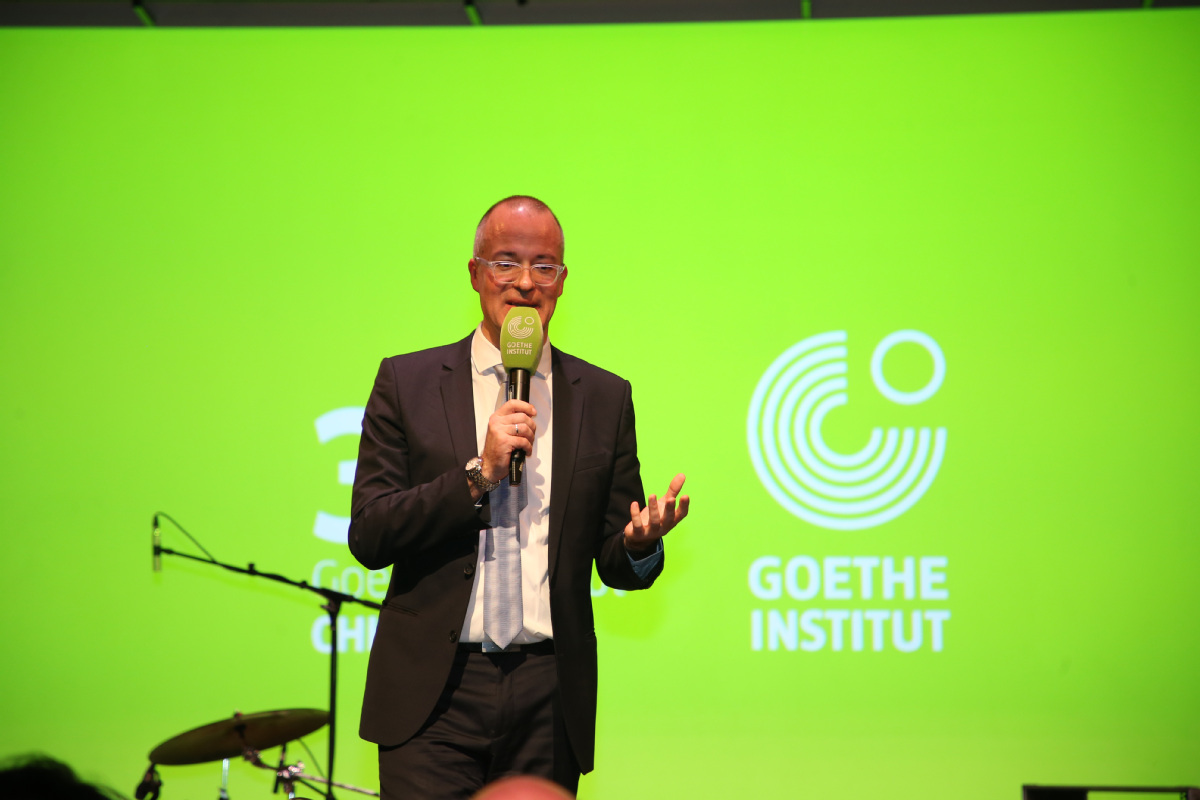Goethe-Institut Beijing director reflects on its 30 years in China


The celebration of three decades of German-Chinese cultural friendship began Saturday in Beijing's 798 arts district as participants marked the 30th anniversary of the Goethe-Institut Beijing.
Thirty consecutive hours of cultural activities and a sleepover highlighted the celebration in 798's Originality Square. The event celebrated the 30 years of dedication to cultural exchanges between China and Germany and China's opening-up 40 years earlier.
The first director of the Goethe-Institut Beijing once wrote in an article that when he first applied to work for the Goethe-Institut in 1981, it seemed a daunting goal to start a branch in China. However, in 1988, the institute finally came into being, thanks to the joint efforts of then-German chancellor Helmut Kohl and Deng Xiaoping, who was dedicated to the opening up of China.
The director of the Goethe-Institut Beijing, Dr. Clemens Treter, told China Daily website that "in the 1990s, China was developing quite fast, but the urbanization has really leap-frogged since then."
Treter noticed that the development is not only seen in the big cities, but also in a lot of the second-tier cities, which are "bustling with energy". The bustling cities also have more international residents compared to 30 or 40 years ago. According to Treter, the past decades have seen an increase in the number of exchange programs between China and Germany, and they are more common compared to the 1990s.
With 30 years of efforts and close collaboration with China, the focus of the Goethe-Institut Beijing has expanded from language education to the fields of art, technology and academia, forging ever-deepening cultural ties between China and Germany.
When speaking of the significance of such exchanges, Treter, a multilingual who is fluent in Chinese, English and French, noted that exposure to foreign languages and culture sparks a lasting curiosity in individuals that breeds cultural awareness and self-reflection.
"And this curiosity lasts too," Treter said. "I have never said, 'Oh I have learned enough Chinese, I have never learned enough English.' You will always, always be getting new pieces, and use the new knowledge to reflect on yourself again. "
Treter reflected on the role of the Goethe-Institut Beijing in the relationship between China and Germany.
"We are here to maintain a 'contact'. When the relationship between the two countries is going well, then cultural exchanges can add varied aspects to this relationship; sometimes, the relationship may be more difficult, then the cultural activities keeps up a tunnel for the two sides to communicate with each other, " he said. "Culture exchanges makes things better when the going is well; and when the going gets tough, it helps for the two sides to 'stay in touch'. "

































